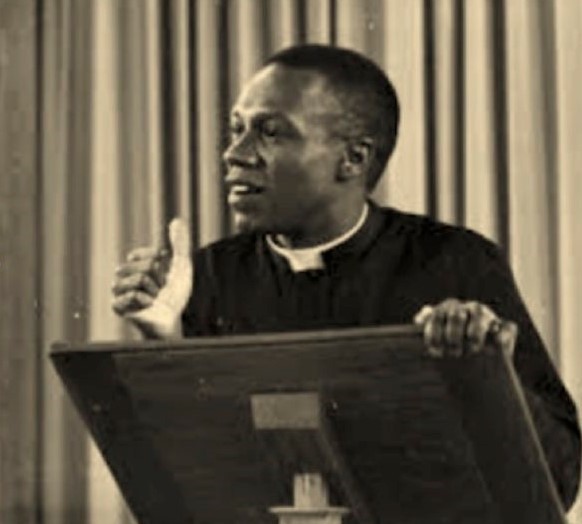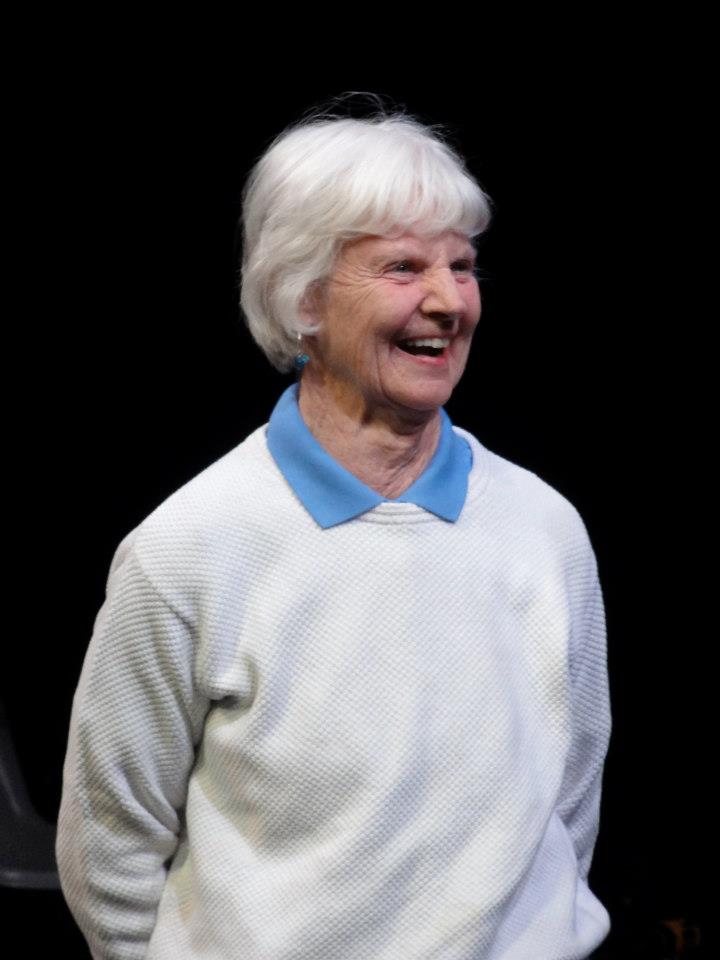On the day of the 95th Academy Awards, I’d like to say . . . Of all the offensive, harmful, harsh, foolish, and false speech spoken by Donald Trump before, during and after he held the office of President of the United States, certain of his remarks concerning theatre and performing artists are unassailably ignorant. For Trump to pass judgment on actors and acting is a form of trespassing, like an invasive species. He has no critic credentials. He’s not trained as an actor. Although he made a cameo appearance in 15 minor movies, he never played someone-not-himself in any of them. In terms of theatre, he’s not acted in a professional production. He does have a co-producer theatre credit, having invested $70,000 in a domestic comedy (Paris is Out!) on Broadway in 1970 that closed after 96 regular performances due to a poor script. But artistic experience – he has none. His acting resume is limited to television, most notably playing “himself” as an intentionally callous boardroom host of a reality TV show titled “The Apprentice.” Otherwise, consistently since 2015, he’s assumed the role of a campaigner running for office whose platform has largely been to promote aspects of his made-up identity, such as I am a genius. In short, Trump critiquing legitimate actors and acting is a guy out of his league.
In January of 2017, during her acceptance speech for a lifetime achievement award at the Golden Globes, Meryl Streep rebuked Trump (not uttering his name) for his campaign-trail mockery of a different-abled reporter. She noted that he attacked a person “he outranked in privilege, power, and the capacity to fight back.” Trump reacted by pronouncing Meryl Streep “one of the most over-rated actresses in Hollywood.” That is an idiotic statement. Not that receiving an award necessarily equals excellence, but the awards in Meryl Streep’s trove indicate mastery. In terms of the Academy alone, her film work earned 21 nominations to date, more than any other actor in history, including a record 17 nominations for best actress, resulting in three wins.
Meryl Streep’s scholastic credentials are equally unimpeachable. She attended the Yale School of Drama, graduating with an MFA in 1975. Then in 1983, the same year I received a doctoral degree in Theatre History & Production from the City University of New York Graduate Center, my school awarded Ms. Streep an honorary doctorate in Theatre, making Meryl and me classmates. She later received four other honorary doctorates: from the premier ivies — Harvard, Yale, and Princeton; and from Indiana University at Bloomington for “cinematic talent” and advocacy for women.
Meryl Streep is known for the singular sincerity and delightfulness of her public speaking, as in a commencement address at Barnard College in 2010 where she established equality for women as central to benefitting the lives of allhuman beings: “Today is about looking forward, into a world where … issues of gender inequality live at the very crux of the global problems everyone suffers (from): from poverty to the age crisis, the rise in violent fundamentalist juntas, (and) human trafficking.” She ended the Barnard address with a dharmic theme, intimating the raw truth that everyone, indeed everything, is without solidity, beholden to impermanence: “This is your time, and it feels normal to you. But really, there is no ‘normal.’ There’s only change, and resistance to it, and then more change.”
I remember in 1982 being in the company of my teacher Stella Adler (arguably the master among master acting teachers of the 20th century) when she mentioned Meryl Streep’s performance in Sophie’s Choice. Even though Stella was born into the art of theatre and mightily capable of analyzing professional acting, she wasn’t in the habit of expressing like or dislike for an actor’s work. The fact that she commented on Streep as Sophie signaled Stella’s interest in Meryl as a uniquely talented actress worthy of regard. What Stella was suggesting is that Meryl missed something in the scene when she (as the character Sophie) was forced by a Nazi officer to choose which one of her children lives and which one dies — that she didn’t slow the scene down enough to catch the fullness of the horror of Sophie’s impossible choice. I mention this anecdote to document Stella’s appreciation for Meryl as a young actress well on her way; and to illustrate that Stella Adler, who was entirely equipped to evaluate actors’ work, generally did not pass judgment; while Trump, entirely unequipped, does pass judgment.
***
Even before attempting to discredit Meryl Streep, Trump applied his dumb phrase “highly overrated” to the revolutionary-era musical Hamilton, which is itself a revolution of hip-hop, rap, and rhythm-and-blues. Created by writer/composer/actor Lin-Manuel Miranda, Hamilton won the 2016 Pulitzer Prize for Drama and received a record-breaking 16 Tony Award nominations, winning 11, including Best Musical. Trump said he “heard” it was “highly overrated.” He didn’t speak from having seen Hamilton. He spoke from hearsay, and not citing his source, he spoke blitheringly.
Following the success of Hamilton, Mr. Miranda co-purchased (and so co-preserved) the landmark Drama Book Shop, relocating it to fresh quarters with solid-wood bookcases, classy armchairs, and a coffee bar. The Drama Book Shop, where I bought books during my student years, was a refuge for Lin-Manuel Miranda during his formative years, as it can be for all arts-minded people any year. There is the example of my student Tim, a white-haired man in his sixties who I met among the incarcerated population at New York’s Woodbourne Correctional Facility, where in 2018 I taught an “acting monologs” class for RTA (Rehabilitation through the Arts). Tim had been on the “inside” for many, no doubt too many, years. He told me that when he was released back home to New York City, the first place he’d go was the Drama Book Shop to buy a copy of Edgar Lee Master’s Spoon River Anthology. That was the play containing the monologs we were working on. Tim loved Spoon River — the array of characters and the poetry of their memories.
When Aretha Franklin died in August of 2018 Trump named her a “great woman with a wonderful gift,” who he “knew well,” and who, he said, “worked for me on numerous occasions.” Hearing that, I thought, “You sound like you think she was your hired help.” Aretha Franklin, the first woman to be inducted into the Rock and Roll Hall of Fame, rest assured, didn’t work for Trump or anyone else who wrote her a paycheck. She worked, or rather, played, for the music and the musicians, and the rest of us were welcome to come along and listen.
The “Respect” worlds inhabited by Aretha Franklin, Lin-Manuel Miranda, and Meryl Streep — feminist, diverse, compassionate, artistic – are utterly alien to Trump. He’s style-focused, attracted to the splashy surface of the world of entertainment. George Clooney called him a carnival barker. Frank Rich, the former chief theatre critic of the New York Times, critiqued Trump’s 2016 campaign performance thusly: “Compared to Nuremberg rallies, second rate, third tier. He’s more the lounge act than the main attraction.”
Mr. Trump presumed he could pronounce upon Meryl Streep, Hamilton, and Aretha Franklin. He similarly aspired to insult Alec Baldwin, Whoopi Goldberg, Bette Midler, and Oprah Winfrey – award winners all. In contrast, his “Apprentice” show, across its Trumpian history, was nominated for eight Emmys, two times for the program itself. It lost all eight times. That’s when Trump first started using the word “rigged” to discredit a contest in which he was a loser. I’m unsure what is Trump’s expertise, given his bankruptcies and lawsuits. Music theatre actor Josh Gad decided, “He isn’t fit to babysit let alone lead.” Well, then, what is Trump’s special arena? What is the identity for which he’ll be remembered? Robert DeNiro gave an answer. In the years 2018-19 at various times and places, Mr. DeNiro spoke the following about Trump — cut and pasted here, to make a monolog:
We have a wannabe gangster in the White House. Even gangsters have morals, and they have ethics. They have a code. This guy doesn’t even know what that means. He is a person who has no sense of right and wrong. He’s a dirty player. The president is supposed to set an example of trying to do the right thing. Not be a nasty little bitch. Because that’s what he is: a petulant little punk. There’s not one moment when Trump said: ‘I’m sorry. I realize I’ve done something that I shouldn’t have done.’ He has not one speck of redeemability in him. I see him and his family: they’re on the take. It’s like a gangster family.
Robert DeNiro located Donald Trump in the gangster arena with the identity of a hoodlum.
In reaction to being called a gangster, Trump tweeted, “Robert DeNiro, a very low IQ individual.” On the contrary, Robert DeNiro, like Marlon Brando before him, is a sharp and studious actor, known for in-depth script analysis, who trained with Stella Adler and altered the course of American film acting. The man who played Vito Corleone and Jimmy the Gent can recognize a hoodlum when he sees one. Robert DeNiro branded Donald Trump irredeemable. That is possibly so. And yet I hold an aspiration: now that he’s on his way out, may Donald Trump examine his karma. May he deconstruct his ignorance. As he becomes nothing but history on the world stage, may he say something redeemable.





